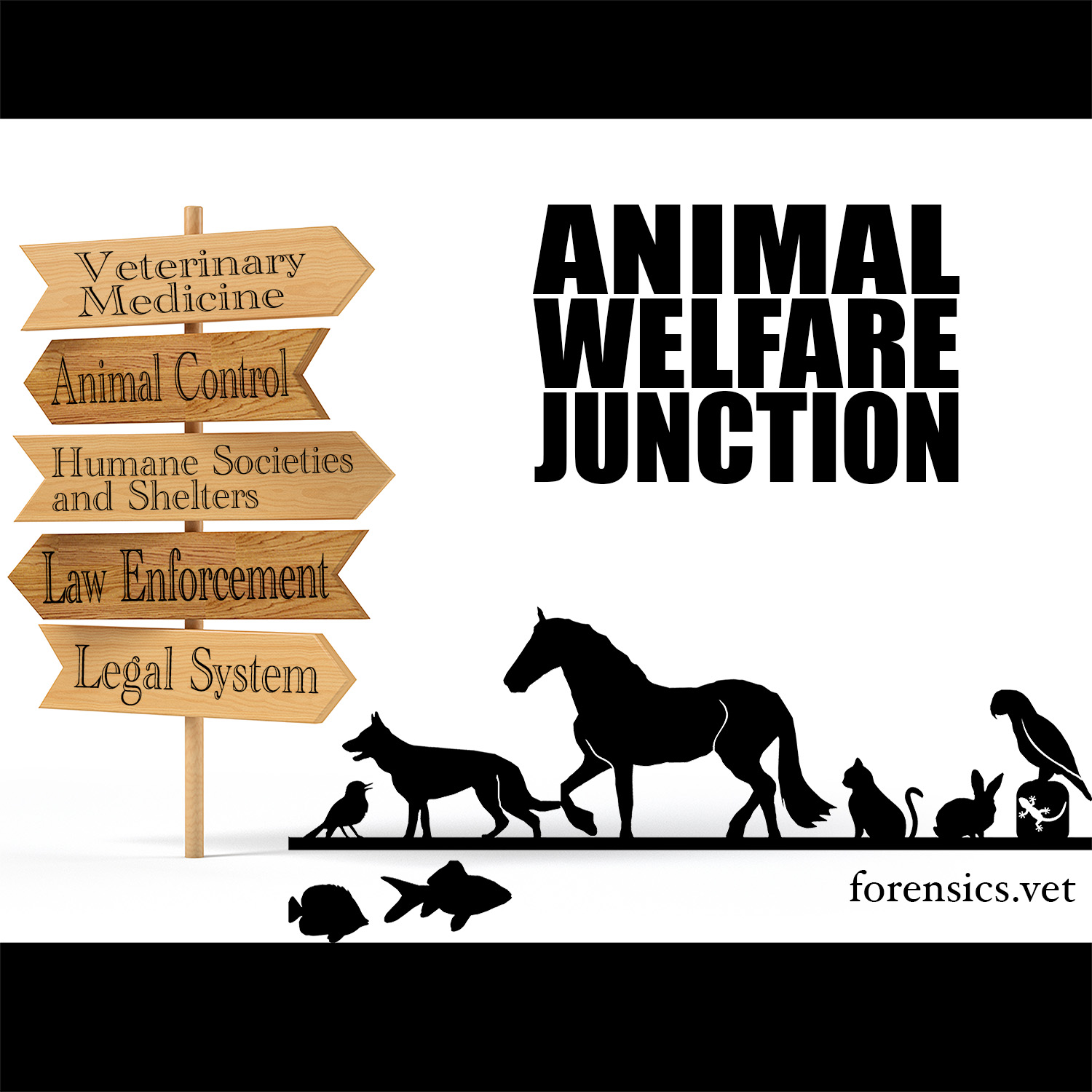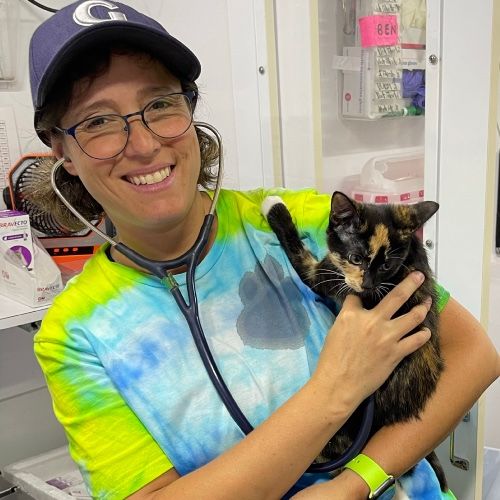Animal ForensiCon 2025: Shelter Vet Forensics with Jennifer Bonovich, DVM
Dr. Jennifer Bonovich gives us an overview of the role of the sheter veterinarian in forensic cases and how animal cruelty cases can be pursued “on a budget”.
The 2025 Animal ForensiCon: The Animal Forensic Investigations Conference is a three-day event, offered in Daytona Beach Shores, Florida from May 7th to 9th, 2025. The conference is hosted by the University of Florida’s Veterinary Forensic Sciences Laboratory.
ForensiCon offers workshops and educational sessions on a wide variety of topics pertaining to criminal investigations, law, small animal investigations, equine and livestock investigations, and wildlife crimes. This conference is open to anyone interested in animal forensic investigations. Attendees will also have the opportunity to network with faculty, experts, and investigators
Transcript
So we just finished a presentation on the role of the
2
:veterinarian in animal cruelty cases.
3
:And to talk to us more about it is Dr.
4
:Jennifer Bonovich, thank
you for being here.
5
:Jennifer Bonovich: Absolutely.
6
:DrG: So let's start with telling
the audience about what you
7
:do, and where do you practice
8
:Jennifer Bonovich: at?
9
:Sure.
10
:I'm in Columbia, South Carolina.
11
:I'm a shelter veterinarian at a municipal
shelter for the City of Columbia,
12
:and we contract with Richland County.
13
:So in my shelter we get about
5,000 animals a year, and
14
:I'm there as a shelter vet.
15
:So surgery, population
management, emergencies and the
16
:like, and also some forensics.
17
:Um, but on the side I have
Caliber Veterinary Forensics.
18
:I started a consultation company so I
could work with state law enforcement
19
:on big dog fighting cases, but also with
other agencies like Humane World for
20
:Animals and A-S-P-C-A on, um, other cases
that might be needed within the state.
21
:DrG: We're always talking about the
importance of having knowledge in
22
:shelter medicine with animal cruelty and
neglect because it is the unfortunate
23
:reality that shelters get a lot of
animals that have been neglected, whether
24
:it's intentional or unintentional.
25
:So what is your experience and what
recommendations do you have for
26
:shelter veterinarians in that field?
27
:Jennifer Bonovich: Yeah, absolutely.
28
:You know, uh, I brought up my
presentation how the Association of
29
:Shelter Veterinarians guidelines for
shelter medicine includes forensics.
30
:So it's such an important part.
31
:It's inherent to what we do
because we get what happens in
32
:the community, which is abuse.
33
:Now, most of these animals, we
may not have an owner, but we see
34
:this abuse on a regular basis.
35
:But when we do have an owner, we as
shelter veterinarians should be prepared
36
:to know how to appropriately collect
information, photographs, and evidence
37
:so that we could potentially get these
people, um, a case so that they may,
38
:you know, be held responsible legally
for what they've done to the animal.
39
:DrG: One of the things that we hear
a lot from shelters, dog pounds,
40
:different organizations is that they
can't look further into animal abuse
41
:and neglect cases due to funds.
42
:But that's not, that's not always right.
43
:Right?
44
:Jennifer Bonovich: Exactly.
45
:So a lot of my presentation was
doing forensics on a budget.
46
:You need very little to do a good case.
47
:It depends on the type of case, but you
could have very little equipment, maybe
48
:just a microscope and a few things.
49
:And based on using what's free, which
is our education that we've already
50
:have, taking pictures, which is free,
serial pictures, say a starvation
51
:case over time and other things
we can do a lot for very little.
52
:And just because we can't do all these
gold standard things does not mean
53
:we cannot produce a very fantastic
case that can win in court and so on.
54
:Many times I've testified in
court as an expert witness.
55
:I, um, a lot of times I don't
need a lot to prove that this
56
:animal had pain and suffering.
57
:DrG: And people think about, because
of the CSI effect that you have
58
:to have DNA and you have to have
this, you have to have the other.
59
:But realistically, all you have to do
is the confidence to, and the knowledge
60
:to give that information so that the,
whether it's the jury or whether it's
61
:the judge, they understand what you're
saying and how it's relevant to the case.
62
:Jennifer Bonovich: Oh, exactly.
63
:So knowing the CSI effect where everyone
expects this very, um, sexy presentation
64
:of all these advanced things, when in
reality you have to keep that in mind when
65
:you're presenting your case to realize
that we still have to be convincing with
66
:what little we have, but what little,
little we have is plenty in our mind to
67
:show yes, there was pain and suffering,
so we don't have to have all that.
68
:But keep in mind, people
might be expecting that.
69
:So be prepared to explain
with what you have.
70
:Your confidence in your conclusion.
71
:But again, you don't need a lot.
72
:Um, a lot of that fancy stuff,
um, most people don't use.
73
:Right?
74
:But you don't need it for most cases.
75
:Now, if you have access to things,
you also have to understand the
76
:implications of using advanced
diagnostics and potential complications.
77
:So sometimes simple is best
78
:DrG: What is the importance of the shelter
support team in veterinary forensic cases?
79
:Jennifer Bonovich: It is very important.
80
:It depends on your leadership and your
relationships with your animal control and
81
:local jurisdictional police departments
with whom you are contracted to work.
82
:So if you have these good relationships.
83
:Then open air conversations, right?
84
:And understanding does your
local law enforcement know
85
:what to look for in the field?
86
:I did create a course for local law
enforcement so that they could understand
87
:what animal crimes look like in the field.
88
:So they might think something's
like something worth
89
:pursuing and it's really not.
90
:Versus they're ignoring something
they might see every day that
91
:they should be bringing up to us.
92
:Your shelter management, i'm very
fortunate that our shelter leadership
93
:is very pro pursuing cases, and in
doing so, it makes it easier for me.
94
:I may not have a large budget for
it, but they are supportive of it.
95
:So collaboration is extremely important.
96
:We need to take the walls down and realize
that we will not make progress if we think
97
:we have to stay in that little bubble.
98
:We start expanding out and getting to
know our local solicitor's office, find
99
:the people who are, um, more into helping
animals and you'd be amazed at what
100
:type of exponential impact you can make.
101
:DrG: Fantastic.
102
:Well, thank you very much for being here
and thank you for your presentation.
103
:Jennifer Bonovich: My pleasure.

